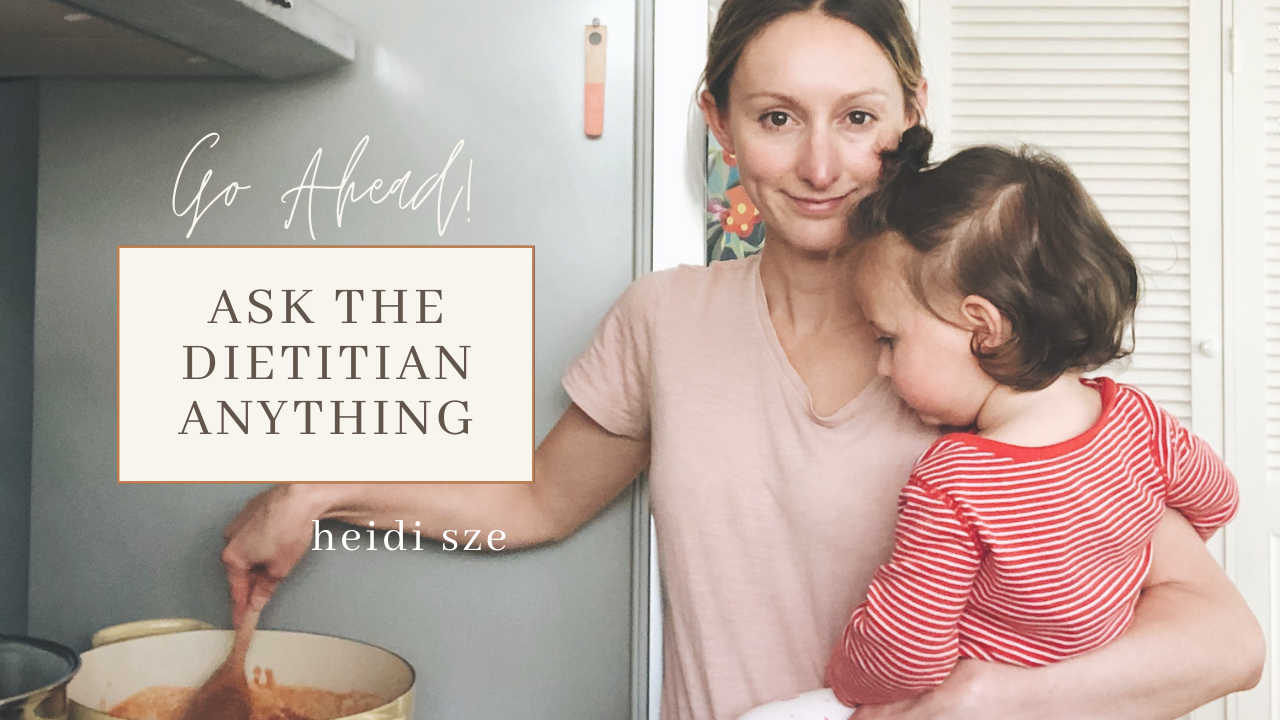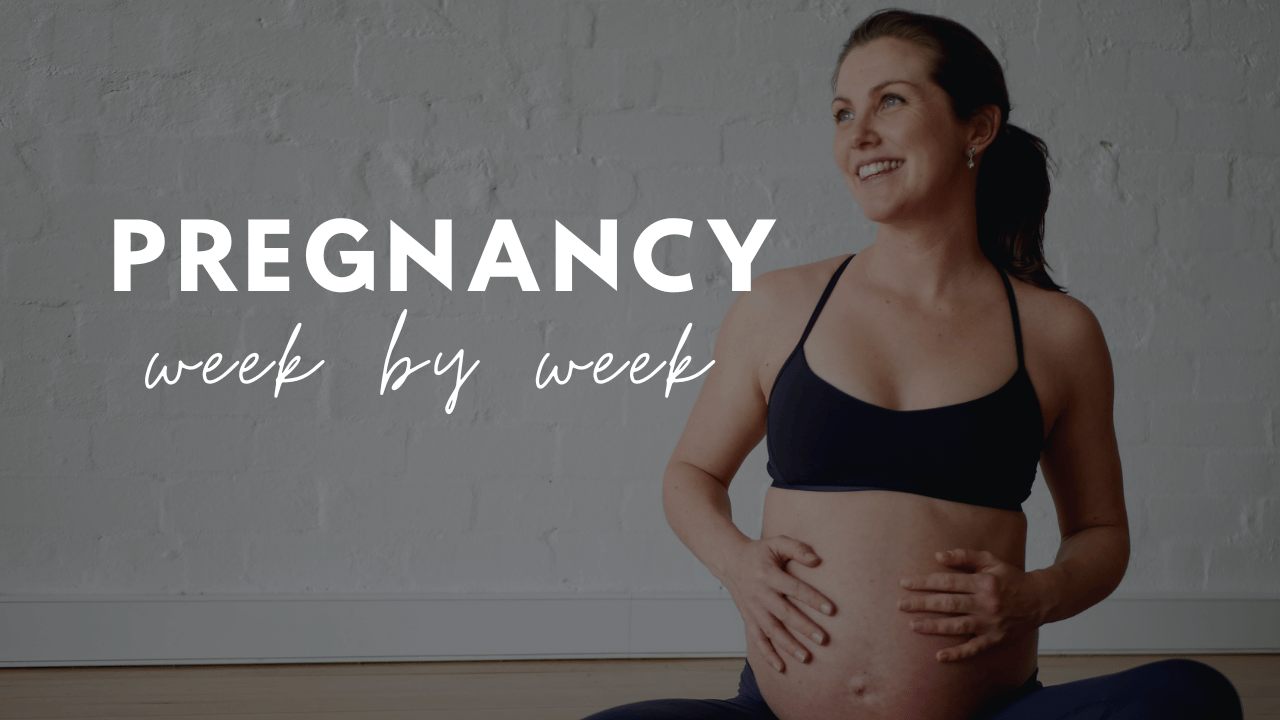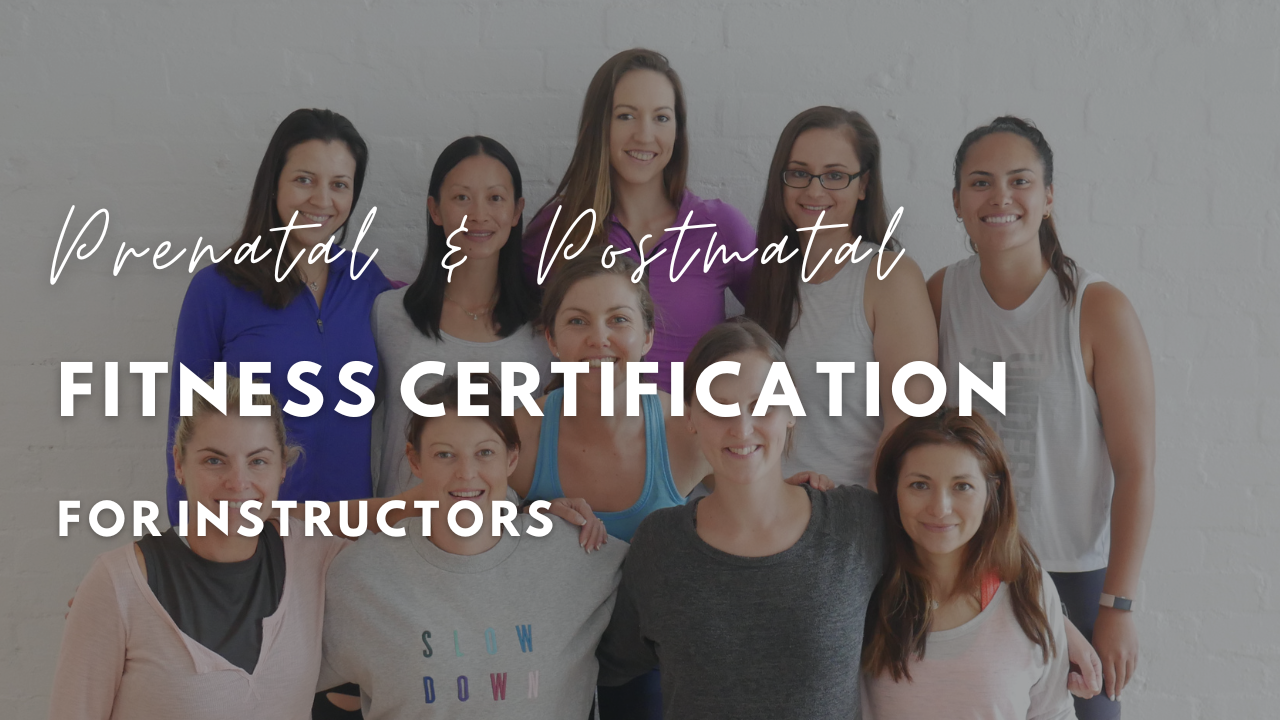Postpartum Nutrition and Prenatal Nutrition: Diet, Guidelines

Postpartum Nutrition and Prenatal Nutrition
Nutrition in pregnancy and postpartum is so important, to not just look after you, but of the health of your growing baby. Recently we interviewed Heidi Sze, a Dietitian focused on helping pregnant women and new Mothers.
Here are some of the top questions from our PregActive community, with Heidi's answers:
1. What are must have pantry items for postpartum?
1. Ghee, nuts and seeds (though great to store these in the fridge if you have space)
2. nut and seed butters
3. oats
4. quinoa
5. rice
6. pasta (or other grains that feel good in your body)
7. wholegrain crackers (100% rye crackers are great)
8. canned fish (especially salmon and sardines for omega 3 fatty acids)
9. canned legumes and spices like ground cinnamon, ginger, turmeric, fennel seeds, etc.
All of these can help you to easily and quickly assemble something nourishing. Then there's items like coconut milk, cacao powder, honey, tinned tomatoes, tomato paste, which might be a must for you, depending on your preferences.
2. What are some good foods to eat during labour?
Every person's labour experience is different - you may or may not want to eat. Some labours can be long, though, so ideally you will be consuming something, and certainly staying hydrated.
Foods that give an instant energy boost are great, and which are easy to digest. You may want something more substantial early on - banana, toast or pasta, for example.
Later on perhaps grapes or dates, even lollies (I sucked on a lollipop towards the end of my son's birth).

Postpartum Nutrition
3. What are the best postpartum foods?
Food that makes you feel good and nurtured; food that is easy to digest; food that is hydrating and restorative.
In Traditional Chinese Medicine and Ayurveda, this generally means warming, oily foods like rice porridges or soups made with broth and well-cooked vegetables topped with ghee or sesame oil, and at some stage there will be gelatinous meats.
This makes a lot of sense, nutritionally, and so I think it's great to learn about these practices and consider what might feel good and realistic for you.
I personally loved vegetable soup, chicken soup, dhal, slow-cooked beef casserole (the recipes for which are in my book!). Eggs are also great - very nutrient dense.

4. Is bone broth good postpartum? How long should I eat it for?
A quality bone broth will be very hydrating, contain electrolytes and valuable nutrients like glycine to aid in your postpartum recovery. So, yes, I think it's a marvellous addition if you wish to have it (you don't have to, of course). Have it for as long as you wish, there are benefits to having it beyond the postpartum period.
5. What are some good sources of omega-3s?
DHA is the omega-3 fatty acid you particularly want to focus on consuming during pregnancy (particularly towards the end of pregnancy) and postpartum, especially when breastfeeding.
The best sources are oily fish like salmon and sardines - they are highly nutrient-dense, low mercury options. If you're not having these fish consistently say 2-3 times a week, talk to your OB/midwife/dietitian about taking a DHA supplement (you can get vegan ones that are made from algae).

6. What are hemp seeds and should I eat them in pregnancy and postpartum?
Hemp seeds are seeds from the hemp plant - the same species as marijuana but they contain only tiny amounts of THC and are deemed very safe to eat during pregnancy and postpartum (and safe for kids!).
They are highly nutritious, a great source of plant-based protein and ALA (an Omega-3 fatty acid), amongst other vitamins and minerals. They're not the cheapest food but, in my opinion, are a worthy investment.
Add them to smoothies, porridge, salads, loads of things. I make a hemp seed spread in my book - a great toast topping.
7. Can I eat chia seeds every day?
If it feels good to you to do so (i.e. if you don't get digestive discomfort) then yes, absolutely! They can help keep our bowels moving, which is always welcome during pregnancy and postpartum. Be sure to stay hydrated with lots of water when having high-fibre foods like chia seeds.
8. If I have low iron, what are good foods to eat?
Red meat is a source of the most highly-absorbable form of iron, so that might help boost your levels. Dark meat (i.e. chicken thighs vs breast) and sardines contain iron, too.
Liver will give you a great dose of iron - you don't need a lot (and it's got such a strong flavour you probably won't want to eat lots), but a little liver can go a long way in helping with iron deficiency.
There are plant-based sources, too, like legumes and dried fruit, but keep in mind the iron they contain isn't as easily absorbed so may not give you the boost you need.

9. Do you have an iron supplement you recommend?
One that contains iron bisglycinate, which is better absorbed by the body. Eagle and Thorne are two of my favourite brands.
10. Why am I forever hungry now I'm breastfeeding?
Because it takes lots and lots of energy to produce breastmilk, so, you need lots and lots of food! Also it's likely you're experiencing broken sleep, which can impact your appetite. Nourish yourself abundantly! The rampant hunger does tend to settle down eventually.
11. What is a healthy pregnancy diet?
Every body is different, and we all have different circumstances and preferences - so what feels good to one person will be different to another.
Generally speaking there are some beneficial foods to include during pregnancy (which I discuss further in my book), such as vegetables, oily fish, eggs, nuts and seeds, gelatinous meats, dairy if that feels good to you, wholegrains if they feel good to you.
Again, every body is different. You probably don't need loads of extra food during pregnancy, but you will benefit from making an effort to select nutrient-dense options, as this will help ensure your nutrient levels don't become depleted from the process of growing, birthing and breastfeeding your baby!
12. What is the best food to eat during pregnancy?
Oily fish is super beneficial (if you can get the ones with soft edible bones that's brilliant), eggs, fibrous vegetables, red meats (maybe organ meats if you're keen and need an iron boost), fermented dairy like yoghurt.
Also, foods that have flavour, like garlic and spices; this might help you baby to get a taste for these foods in your womb. If you’re dealing with nausea, though, be gentle on yourself. I don't know any pregnant person who could eat salmon, greens and quinoa while feeling perpetually nauseated.
13. What foods should I avoid in pregnancy?
Foods that are susceptible to contamination, because as a pregnant person you will be more susceptible to infection.
Don't eat foods that have been sitting out. Purchase foods from reputable sources, avoid pre-cut fruits and vegetables (i.e. containers of pre-cut fruit salad), wash your fruits and veggies well, eat food promptly, heat food well (no uncooked shellfish), store food correctly in the fridge/freezer and reheat thoroughly.
Also avoid fish high in mercury (i.e. flake), foods made with artificial sweeteners, alcohol, too much caffeine and check any herbal tonics/teas with a dietitian or naturopath.
14. What cheeses can I eat in pregnancy? Can I eat goats cheese in pregnancy?
Due to its composition, soft cheese like goats cheese is more susceptible to contamination than hard cheese. The risk of getting sick is low, but it's there, so it's a personal choice. You might choose to only eat hard cheese, or be sure to cook soft cheese (like ricotta) well before consuming.





